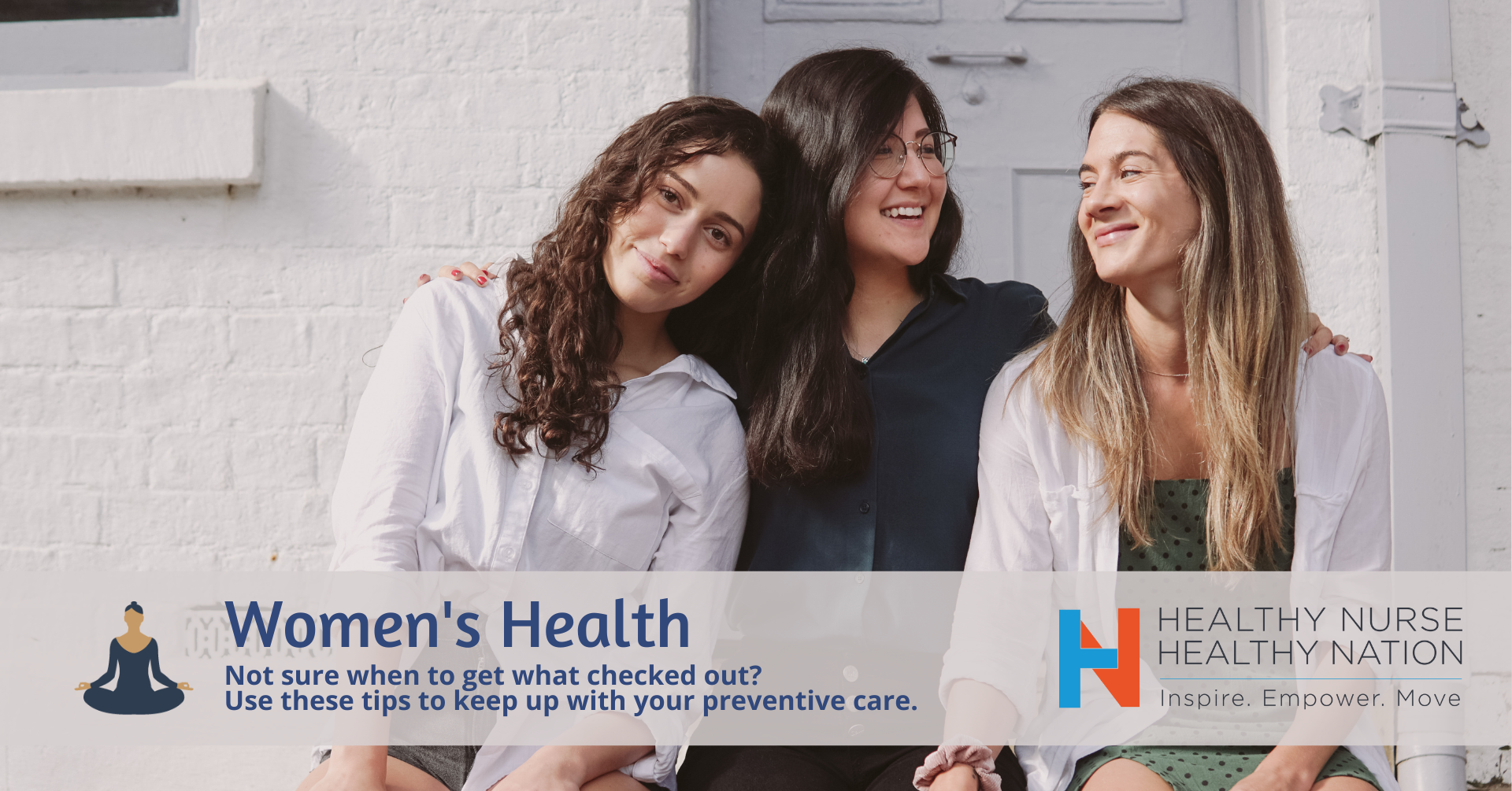Healthy Nurse, Healthy Nation™ Blog - Women’s Health Update
Published
“Nurses often have the mentality that ‘no news is good news,’ but intellectually we know that’s not true. Many diseases are manageable with early intervention,” says Brenda Murdough, a PACU nurse at Duke University Hospital and a 36-year veteran.
The annual physical under review
In the past, most physicians recommended yearly physical exams, but recently The American Medical Association altered that recommendation. “If you're a healthy individual, with no health conditions or family history, you can get a physical every two to three years,” advises Toni Melvin, MS, CRRN, NP-C, an Adult Nurse Practitioner for Veterans Affairs. “If you have concerns or any issues, then going yearly is best.” (Editor's note: this blog was originally published in 2017, physical exam recommendations may change. As of 2022, professional opinions on the frequency of physical exams still vary. Discuss your options with your healthcare provider.)
Getting specific exams and preventive screenings from specialized providers is crucial to preventing disease and helping nurses to live longer, healthier lives.
Health Check-ups for Women
Not sure when to get what health screenings and immunizations you need? HHS has a great tool to help with this: My Healthfinder. By providing your age and sex, you will get a list of current recommendations. Use this and other resources in this blog to help make sure you’re current with your preventive care. Also, please check with your healthcare provider to see if you have any special health issues to consider for additional preventive care.
Additional resources can be found at the Health Resources and Services Administration (HRSA) Women’s Preventive Services Guidelines and the Office on Women's Health website.
It’s easy to forget to make appointments for routine screenings. Use these ideas to help you stay on top of them.
- At the end of one visit, schedule the next one. Even if your appointment is two years later, your healthcare provider’s office can add it to their calendar and give you a call when the appointment is approaching.
- Use important dates as reminders. Anderson tells her patients to take stock of their screenings on their birthday each year. She suggests couples use their anniversary as a time to take stock of their health.
- Sign up for text message alerts or the email list of your health care providers. They’ll frequently notify you when you’re due for another screening or visit.
- Take advantage of pharmacies that offer screenings. Many have a blood pressure machine that you can use while you wait for a prescription. Pharmacies nationwide are adding more and more offerings.
- Utilize hospital or community health fairs. Many offer screenings free of charge and on the spot.
Want to do more? Learn more about events taking place during National Women's Health Week!
Find this information helpful? Share them with a nurse you know on Facebook, Twitter, and Instagram by clicking on the social media links on the left side of the page. Tag us with #healthynurse.
RELATED: Have you seen our Men’s Health Cheat Sheet?
Updated 5/10/22

Have you joined Healthy Nurse, Healthy Nation (HNHN) yet? Join us today!
Additional resources:
American Cancer Society. Guidelines for the Early Detection of Cancer.
CDC. Adult Immunization Schedule.
CDC. Oral Health.
CDC. Protect Your Vision.
CDC. What Can I Do to Reduce My Risk of Breast Cancer?
Medline Plus. Health Screening - Women Ages 18-39.
US DHHS. Office on Women's Health. National Women's Health Week.
Blog Quality of Life
06/05/2017 10:09am CDT



Post a Comment or Question
If we know that HTN is the leading cause of heart attacks and stroke and if one out of every 6 people have high blood pressure and Don't know it (roughly 18 million people) cause there's no warning signals in most cases.....why would they make such a recommendation??!!!
Fortunately we are at a turning point where technology, science and health are creating advanced wristbands that allow all of us to become more engage with our biometrics in real time. Up to this point we know more about the health of our cars than we do with the measurements of our bodies! I'm wearing a snazzy wristband that monitors my BP with estimated measurements daily (and they are pretty close to an BP cuff reading)....I can set it for readings as frequently as every 30 minutes. I can even download the data and share it with my healthcare provider.
This will be a gamechanger in health and wellness industry!!...More and more people will finally become an active participant in their healthcare team. And as nurses, isn't this the direction we want the population to go towards!!